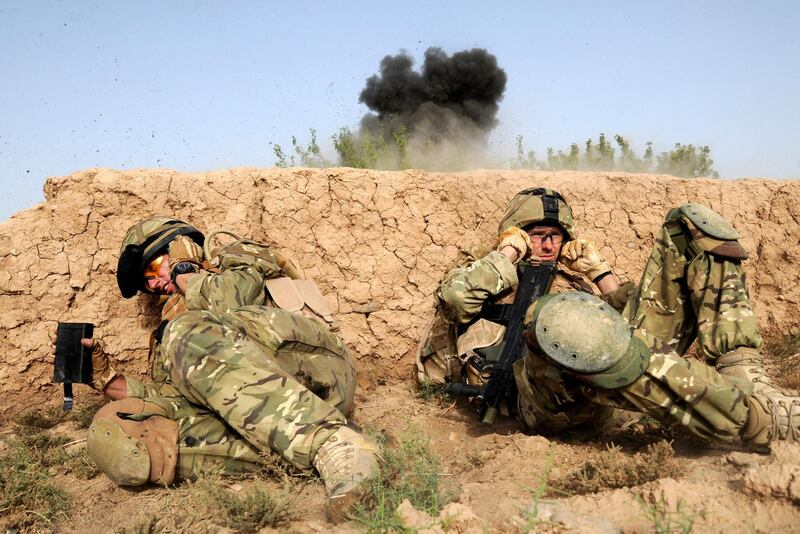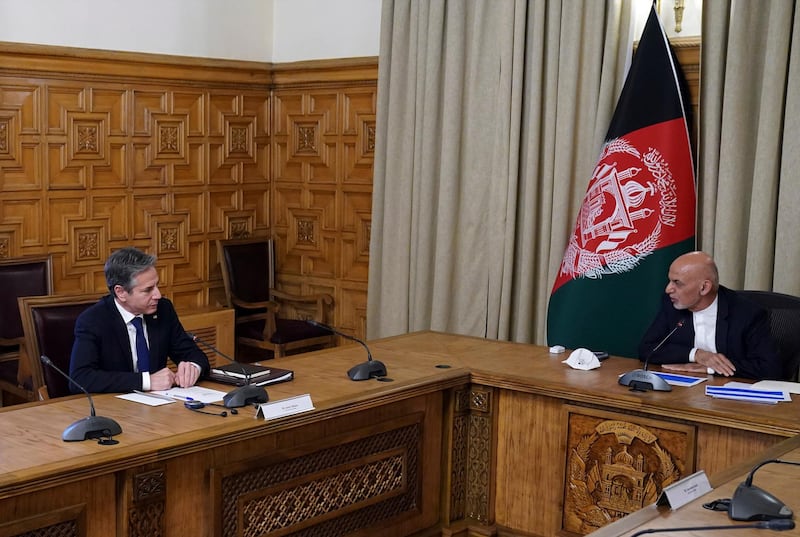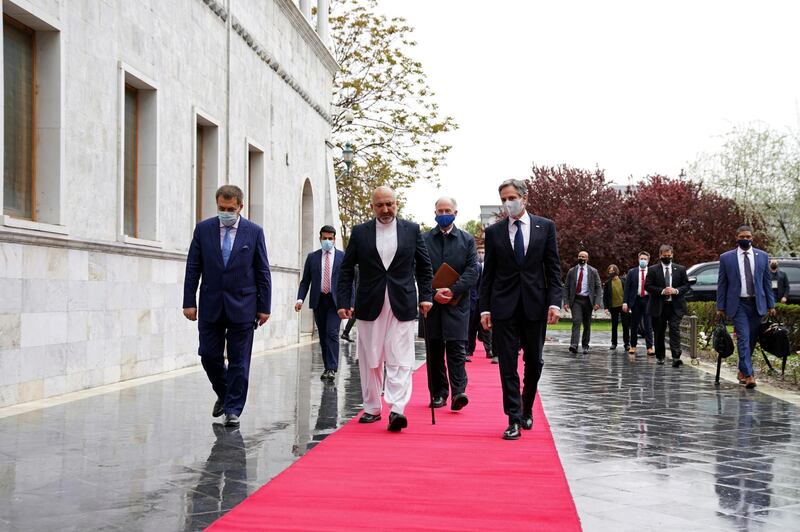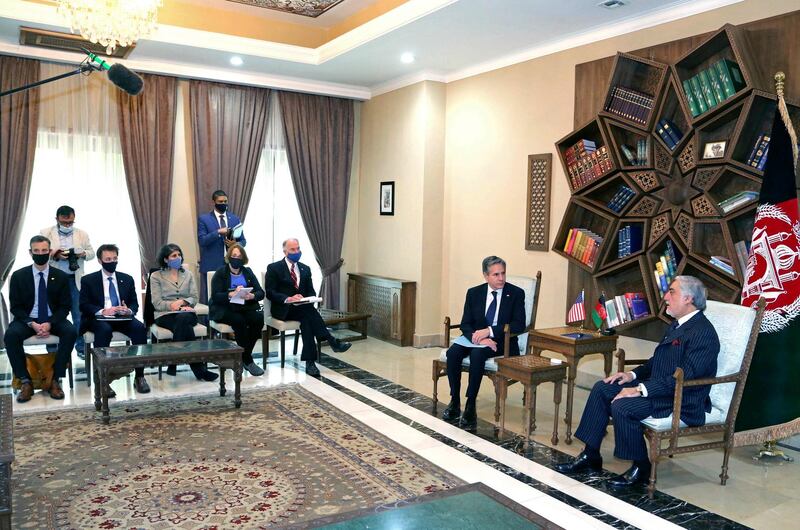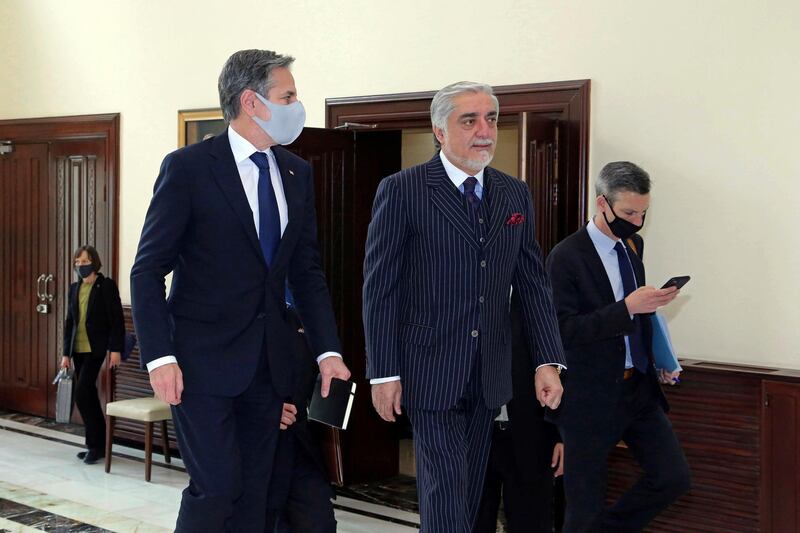Afghanistan faces much bloodshed when British forces withdraw later this year, former soldiers with experience of fighting the insurgency there have warned.
Robert Clark, who served in Afghanistan and is now a defence research fellow at the UK's Henry Jackson Society, said the gains made over the past 20 years would be rapidly undone when British and American troops pull out of the country by September.
He said the Afghan Army faced a perilous situation as the Taliban moves to increase its foothold.
"US and British forces in particular have provided three battle capabilities to Afghans – close air support, medical evacuation and intelligence. You take those three components away and unfortunately the Afghan National Army will be blind, deaf and relatively defenceless," Mr Clark told The National.
“There will be no battle – if the Taliban wish, they will almost certainly take key strategic provinces without so much of a fight. The central government in Kabul will be left encircled and surrounded.”
He said this scenario should provide food for thought for US President Joe Biden’s administration and the UK government. “It will be an embarrassment,” he said.
Mr Biden said it was time to end America's "forever war" as he pledged to withdraw all US forces – 2,500 troops – starting May.
The drawdown will end on September 11, marking the 20th anniversary of the 9/11 attacks.
Soon after Mr Biden made his announcement, Britain said it would withdraw about 700 troops, while Nato Secretary General Jens Stoltenberg said the alliance would pull about 7,000 military personnel from Afghanistan.
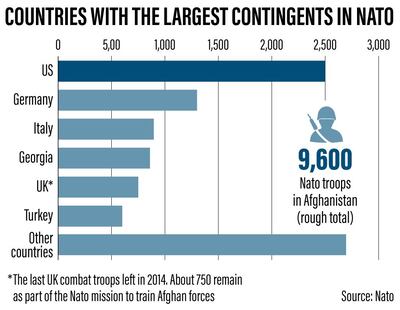
The alliance said it had achieved a goal to “prevent terrorists from using Afghanistan as a safe haven to attack us” but acknowledged there was no good reason to remain.
“There is no military solution to the challenges Afghanistan faces,” Nato members said.
Col Hamish de Bretton-Gordon, a former British Army commander specialising in chemical and biological warfare, said Afghans faced an uncertain future.
"In a perfect world we would stay there and bring peace to that country but it's not been possible," he told The National.
“I feel sad for the Afghan people, who have once again been plunged into darkness.”
The Chemical Warrior author said the UK should turn its attention to matters elsewhere in the Middle East, such as Syria.
“There’s a tremendous legacy in Afghanistan – 450 of my colleagues died there,” he said.
“However, I don’t think the Taliban and the insurgence in Afghanistan offer the threat to the UK that perhaps they did after 9/11 when we went in.”
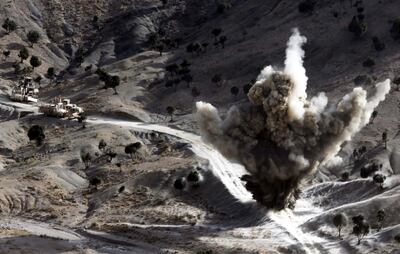
Others see the prospect of Afghanistan under Taliban rule as dangerous.
Nick Reynolds, an analyst at the Royal United Services Institute think tank, warned terrorist group Al Qaeda could again base itself in the country should the Taliban take control.
"The Taliban have basically been winning and gaining control of more districts and the countryside but not the cities," he told The National.
“If that happens, and the likely outcome is that it will, for the Afghan people it will be a disaster.
“The Taliban has always sheltered Al Qaeda, and their goal was to strike internationally. That is the risk to us.”
Mr Reynolds did not agree with the decision to withdraw but agreed there were no appealing alternatives.
“One thing they really wanted to avoid was being stuck there forever, but apart from pulling out that is the only option available at the moment,” he said of the western military presence. “It’s almost cutting the losses.”
Mr Biden’s announcement marks perhaps the most significant foreign policy decision of his presidency to date. He has long been sceptical of a US presence in Afghanistan.
More than 2,300 US personnel were killed and 20,000 wounded in the long-running conflict, in which nearly 50,000 Afghan civilians were killed. In addition, 454 British soldiers and civilians were killed on operations during the period, the Ministry of Defence said.
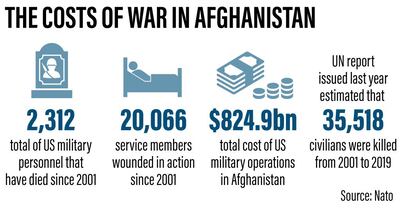
Mark Malloch Brown, former deputy secretary general of the UN, said Afghanistan would need continued support from the US and UK to avoid more carnage.
“We can’t just wash our hands of it,” he told Sky News. “This is a very tough decision, it’s a consequential decision for the life of Afghans, and we all need to look hard at the soft power decisions we put in place to minimise the loss to Afghan lives.
He said Britain had “an absolute moral obligation” to find the best solution to end the conflict.
Col de Bretton-Gordon also stressed the importance of supporting veterans.
“I was in a warzone and then I was on a British Airways flight and back to normal life,” he said. “Now we understand a lot better that soldiers need to decompress and they do need support. There are people who have seen horrific things in Afghanistan. Things aren’t perfect, but we’ve made a lot of headway. I still think it’s desperately sad to see veterans suffering from mental health issues.”
UK Defence Secretary Ben Wallace said British civilians and military personnel, “both serving and veterans, would have lasting memories of our time in Afghanistan. Most importantly we must remember those who paid the ultimate sacrifice, who will never be forgotten.”
